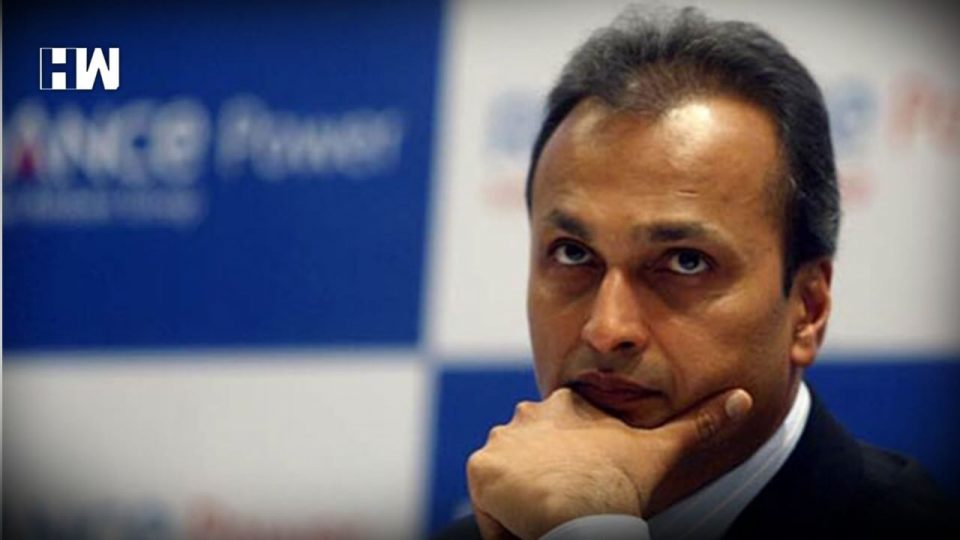The Anil Ambani group of companies, led by Reliance Communications, have been facing a severe/grave financial and business crisis. Insolvency proceedings have commenced in the case of a bankrupt RCom and the market capitalisation of the group has collapsed from over ₹ 2 lakh crores in 2007 to just about ₹ 25,000 crores now. Amidst this crisis, the embattled promoter Anil Ambani has pledged most of his shareholding in group companies, to raise loans from financial institutions and mutual funds. These loans are at a 50% margin i.e. if you pledge shares of a market value of ₹1 crore, you get a loans of ₹ 50 lacs and if there is a fall in the market prices, you need to top up or replenish this security, by pledging more shares with the lenders. But if you have pledged most of your shares, you are at a dead end, and the lender is bound to sell your shares to recover the loans, as has happened in the case of Anil Ambani.
That’s what happened in the case of the Reliance Group led by Anil Ambani, whose share prices plunged by about 60% during the first half of February. Four financial institutions, led by Edelweiss dumped the pledged shares in the market, to recover their loans, since Anil Ambani was unable to replenish the pledged shares. A war of words ensued and a dismayed R Power took Edelweiss to court, with a defamation suit of ₹ 2,700 crores, to compensate for fiscal and reputational loss. The Bombay High Court not only refused to give any relief to the Anil Ambani company, but also gave it a mouthful, saying that its petition smacks of deceit, with an intention to mislead the court. The enraged judge said that the sale of shares was as per the agreement and that RPower was not an illiterate or small party, unaware of the contract conditions when they were signed. The Zee group too faced such a predicament, even though it did not go to court, as the Reliance group entity did.
The well chastened and humbled Anil Ambani group thereafter, reached an agreement with 90% of the lenders to whom the shares were pledged, who agreed not to sell the shares until 30.9.2019, by which time the group is expected to sell its other assets and repay the loans. The Zee Group too managed to execute such an understanding with its lenders, helping it to avoid any desperate measures that destroy value. SEBI has interestingly not objected to or cancelled this agreement of Reliance Group and Zee with the lender, even though it seems to jeopardise the investor interest of these financial institutions.
The fact is that with many companies not doing too well and being in a debt trap, as in the case of RCom, Zee and Emami, corporate profits receding, fund raising or restructuring of loans not being easy as our banking crisis remains unresolved, debt loaded companies and their promoters have been desperately seeking fund raising avenues, one of which has been loans to promoters by pledge of shares. It is a legitimate fund raising source, with corporate promoters reported to have raised ₹ 1.20 lakh crores, by pledging shares worth ₹ 2.40 lakh crores. The problem arises when promoters are unable to repay these loans, as we have seen in the Anil Ambani case. But such cases tend to lead to a collapse in shareholder value and the worst sufferer is the common shareholder of these companies.
The larger issues at stake here are:-
- Promoters and managers of companies need to have their skin in the game and they should not be allowed to pledge their shareholding beyond a point, say 50% thereof. In fact some promoters have surreptitiously exited from their companies in this manner, as has been observed by the RBI.
- While FIs are right in dumping/selling shares in case of default, it would be better if such sale is done in an amicable/calibrated manner, in order to protect shareholder value.
- Many promoters are in a debt trap and more such cases of default and firesale of shares are imminent, in which the worst sufferer will be the ordinary shareholders. Therefore it is important that time is given to a defaulter to repay the loans, than to dump the shares in the market.
As an independent media platform, we do not take advertisements from governments and corporate houses. It is you, our readers, who have supported us on our journey to do honest and unbiased journalism. Please contribute, so that we can continue to do the same in future.

